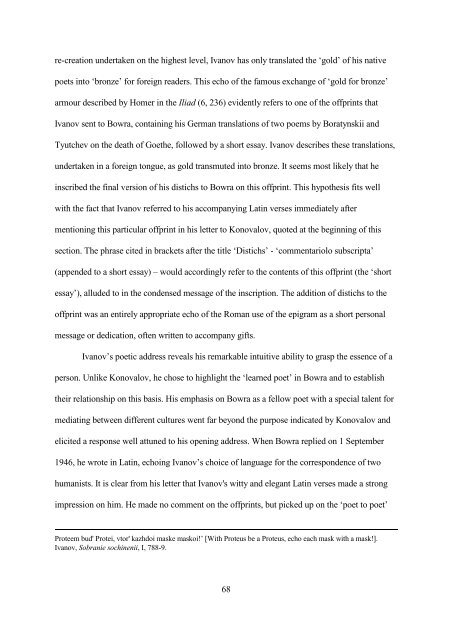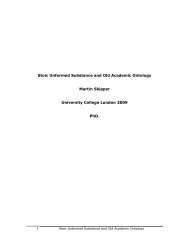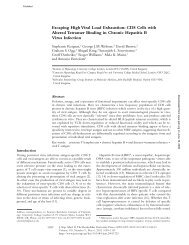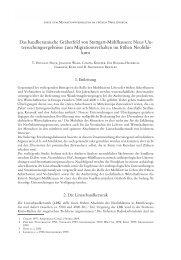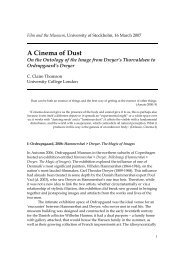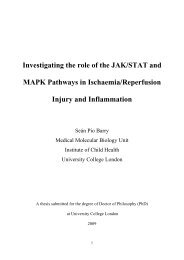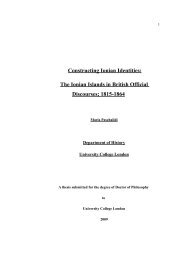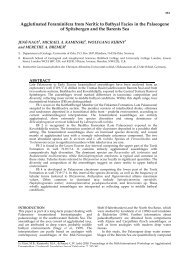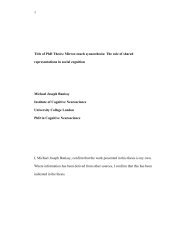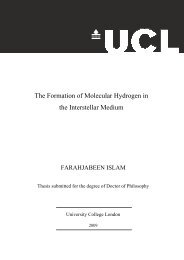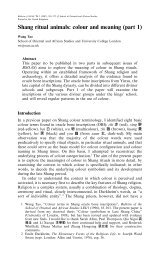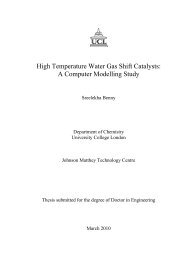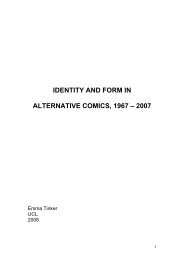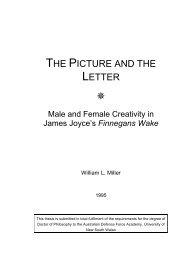Vyacheslav Ivanov and C.M. Bowra: a ... - UCL Discovery
Vyacheslav Ivanov and C.M. Bowra: a ... - UCL Discovery
Vyacheslav Ivanov and C.M. Bowra: a ... - UCL Discovery
You also want an ePaper? Increase the reach of your titles
YUMPU automatically turns print PDFs into web optimized ePapers that Google loves.
e-creation undertaken on the highest level, <strong>Ivanov</strong> has only translated the ‘gold’ of his native<br />
poets into ‘bronze’ for foreign readers. This echo of the famous exchange of ‘gold for bronze’<br />
armour described by Homer in the Iliad (6, 236) evidently refers to one of the offprints that<br />
<strong>Ivanov</strong> sent to <strong>Bowra</strong>, containing his German translations of two poems by Boratynskii <strong>and</strong><br />
Tyutchev on the death of Goethe, followed by a short essay. <strong>Ivanov</strong> describes these translations,<br />
undertaken in a foreign tongue, as gold transmuted into bronze. It seems most likely that he<br />
inscribed the final version of his distichs to <strong>Bowra</strong> on this offprint. This hypothesis fits well<br />
with the fact that <strong>Ivanov</strong> referred to his accompanying Latin verses immediately after<br />
mentioning this particular offprint in his letter to Konovalov, quoted at the beginning of this<br />
section. The phrase cited in brackets after the title ‘Distichs’ - ‘commentariolo subscripta’<br />
(appended to a short essay) – would accordingly refer to the contents of this offprint (the ‘short<br />
essay’), alluded to in the condensed message of the inscription. The addition of distichs to the<br />
offprint was an entirely appropriate echo of the Roman use of the epigram as a short personal<br />
message or dedication, often written to accompany gifts.<br />
<strong>Ivanov</strong>’s poetic address reveals his remarkable intuitive ability to grasp the essence of a<br />
person. Unlike Konovalov, he chose to highlight the ‘learned poet’ in <strong>Bowra</strong> <strong>and</strong> to establish<br />
their relationship on this basis. His emphasis on <strong>Bowra</strong> as a fellow poet with a special talent for<br />
mediating between different cultures went far beyond the purpose indicated by Konovalov <strong>and</strong><br />
elicited a response well attuned to his opening address. When <strong>Bowra</strong> replied on 1 September<br />
1946, he wrote in Latin, echoing <strong>Ivanov</strong>’s choice of language for the correspondence of two<br />
humanists. It is clear from his letter that <strong>Ivanov</strong>'s witty <strong>and</strong> elegant Latin verses made a strong<br />
impression on him. He made no comment on the offprints, but picked up on the ‘poet to poet’<br />
Proteem bud' Protei, vtor' kazhdoi maske maskoi!’ [With Proteus be a Proteus, echo each mask with a mask!].<br />
<strong>Ivanov</strong>, Sobranie sochinenii, I, 788-9.<br />
68


